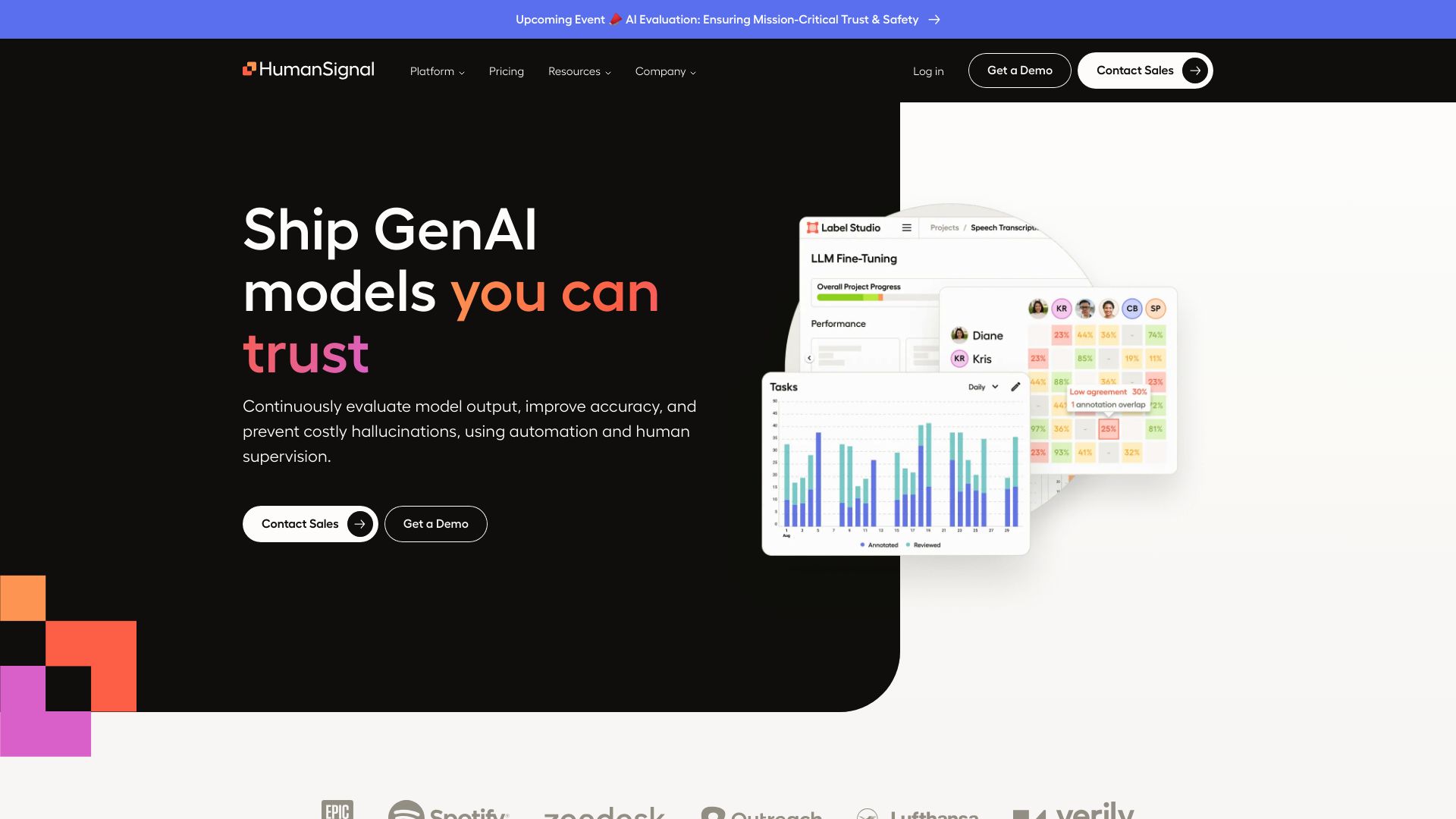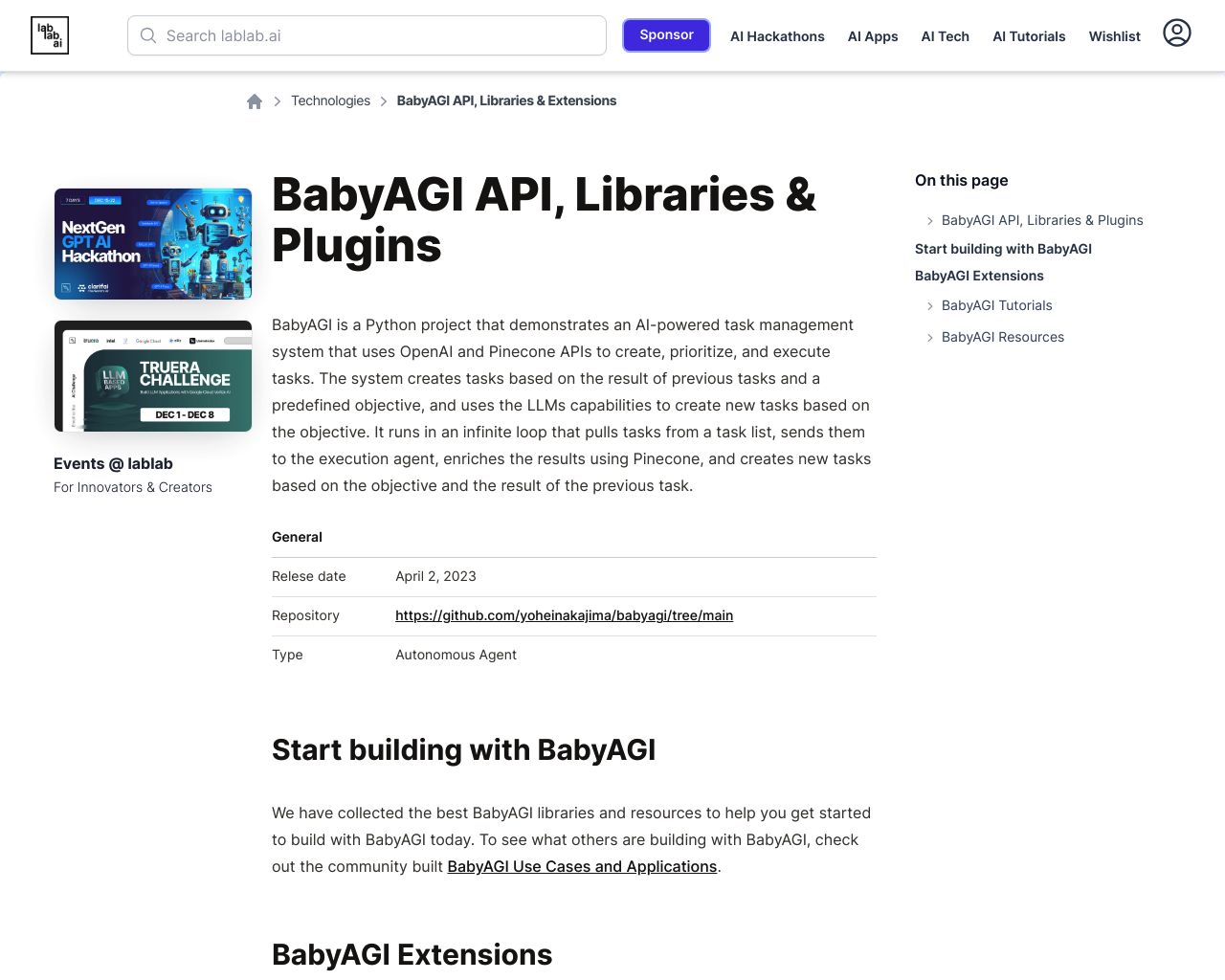A Comprehensive Comparison: Adala vs BabyAGI
AI-powered agent platforms are reshaping how businesses approach data labeling, task management, and workflow automation. Adala and BabyAGI represent two innovative approaches in this space, each with unique strengths. Adala specializes in autonomous data labeling, using AI agents that learn from ground truth datasets to tackle complex classification tasks. BabyAGI, on the other hand, simulates human-like cognition for task management, continuously generating and prioritizing objectives. This comparison explores these platforms’ capabilities, limitations, and potential applications, while introducing SmythOS as a comprehensive alternative that combines user-friendly design with advanced AI functionalities. Whether you’re a developer seeking powerful APIs, a business leader focused on scalability, or a non-technical user looking for accessible AI tools, this analysis will help you navigate the evolving landscape of AI agent platforms.
Adala Overview
Adala revolutionizes data labeling with autonomous AI agents. This open-source framework empowers data scientists to create intelligent agents that learn from ground truth datasets, evolving into efficient prediction engines for large-scale data labeling tasks.


Adala’s agents excel in classification and labeling tasks across various data types, including text, video, and other formats. The platform supports iterative learning, allowing agents to refine their performance over multiple interactions with datasets. This approach ensures continuous improvement and adaptation to complex labeling challenges.
Adala… empowers data scientists to create intelligent agents that learn from ground truth datasets, evolving into efficient prediction engines for large-scale data labeling tasks.
Key features of Adala include its integration with foundation models like GPT-4, support for various data formats, and robust security measures such as data encryption. The platform facilitates collaborative workflows, enabling teams to work efficiently on large-scale projects. Adala also emphasizes transparency and explainability, building trustworthy AI agents aligned with human values.
While Adala offers powerful capabilities for autonomous data labeling, it lacks some features found in more comprehensive AI development platforms. The absence of a visual builder or no-code editor may limit accessibility for non-technical users. Additionally, there’s no mention of specific debugging tools or an agent work scheduler, which could impact ease of use for some developers.
BabyAGI Overview
BabyAGI pioneers open-source artificial intelligence for autonomous task management. This innovative platform simulates human-like cognitive processes, creating AI agents capable of generating, prioritizing, and executing tasks based on given objectives.


BabyAGI’s core functionality revolves around its ability to mimic human thought patterns. The system continuously learns from previous tasks, adapting to new challenges much like a person would. It leverages advanced natural language processing and vector databases to store and retrieve task results, ensuring seamless operations.
BabyAGI’s core functionality revolves around its ability to mimic human thought patterns. The system continuously learns from previous tasks, adapting to new challenges much like a person would.
Key features include autonomous task generation, efficient prioritization, and adaptive execution. BabyAGI integrates memory and learning capabilities, allowing it to improve over time and offer a personalized approach to task management. This adaptability makes it suitable for various applications, from customer service to healthcare and education.
While BabyAGI offers powerful capabilities, it lacks some features found in more comprehensive platforms. It doesn’t provide a visual builder or no-code editor, which may limit accessibility for non-technical users. Additionally, there’s no mention of specific debugging tools or audit logs for analytics, which could impact troubleshooting and performance tracking.
BabyAGI’s strength lies in its task-driven autonomy and adaptability. It supports multimodal data types, enables multi-agent collaboration, and facilitates human-AI interaction. The platform also emphasizes data security, with encryption measures in place for data at rest and in transit.
BabyAGI’s strength lies in its task-driven autonomy and adaptability. It supports multimodal data types, enables multi-agent collaboration, and facilitates human-AI interaction.
In the competitive landscape, BabyAGI stands out for its focus on simulating human-like cognition in task management. However, its open-source nature may require more technical expertise to implement and customize compared to some commercial alternatives. For organizations and researchers looking to push the boundaries of AI in task management and problem-solving, BabyAGI offers a compelling, if somewhat technically demanding, solution.
Feature Comparison
Adala and BabyAGI offer distinct approaches to AI agent development, with notable differences in their core components and security features. Adala excels in autonomous data labeling, leveraging AI agents that learn from ground truth datasets. Its strength lies in handling various data types, including text, video, and other formats. In contrast, BabyAGI focuses on simulating human-like cognitive processes for autonomous task management, continuously generating and prioritizing tasks based on given objectives.
In terms of core components, Adala provides robust support for multimodal data processing and classification tasks. However, it lacks a visual builder or no-code editor, potentially limiting accessibility for non-technical users. BabyAGI, while offering powerful task generation and prioritization capabilities, also does not feature a visual interface or no-code options, requiring more technical expertise for implementation.
Regarding security, both platforms emphasize data protection, with Adala explicitly mentioning encryption for data at rest and in transit. BabyAGI’s approach to security is less clearly defined in the available information. Neither platform specifically mentions features like IP control or comprehensive audit logs for analytics, which could be crucial for enterprise-level deployments requiring stringent security measures and detailed performance tracking.
Feature Comparison Table
| Adala | BabyAGI | SmythOS | |
|---|---|---|---|
| CORE FEATURES | |||
| Hosted Agents (Dev, Production) | ✅ | ❌ | ✅ |
| Environments (Dev, Production) | ✅ | ❌ | ✅ |
| Visual Builder | ❌ | ❌ | ✅ |
| No-Code Options | ❌ | ❌ | ✅ |
| Explainability & Transparency | ✅ | ❌ | ✅ |
| Human-AI Interaction | ✅ | ❌ | ✅ |
| Audit Logs for Analytics | ❌ | ❌ | ✅ |
| Agent Work Scheduler | ✅ | ❌ | ✅ |
| Logs & Monitoring | ✅ | ❌ | ✅ |
| SECURITY | |||
| Constrained Alignment | ✅ | ❌ | ✅ |
| IP Control | ❌ | ❌ | ✅ |
| COMPONENTS | |||
| Foundation AIs | ✅ | ❌ | ✅ |
| Data Lakes | ❌ | ❌ | ✅ |
| DEPLOYMENT OPTIONS (EMBODIMENTS) | |||
| Staging Domains | ❌ | ❌ | ✅ |
| Production Domains | ❌ | ❌ | ✅ |
| Deploy as Scheduled Agent | ❌ | ❌ | ✅ |
| DATA LAKE SUPPORT | |||
| Sitemap Crawler | ❌ | ❌ | ✅ |
| YouTube Transcript Crawler | ❌ | ❌ | ✅ |
Best Alternative to Adala and BabyAGI
SmythOS emerges as the superior alternative to Adala and BabyAGI, offering a comprehensive platform for AI agent development and deployment. We designed SmythOS to address the limitations of other platforms while providing an unparalleled set of features and capabilities.
Our visual builder sets SmythOS apart, enabling users to create complex AI workflows without extensive coding knowledge. This drag-and-drop interface democratizes AI development, making it accessible to a broader audience while still offering the depth and flexibility required by experienced developers.
SmythOS emerges as the superior alternative to Adala and BabyAGI, offering a comprehensive platform for AI agent development and deployment.
SmythOS excels in its extensive integration ecosystem, supporting a wide array of APIs, AI models, and tools. This flexibility ensures that our platform can adapt to virtually any workflow or business process. Pre-built API integrations and templates significantly reduce setup time, allowing users to focus on innovation rather than configuration.
Unlike Adala and BabyAGI, SmythOS offers robust multi-agent orchestration capabilities. This feature enables teams of AI agents to collaborate on complex tasks, enhancing efficiency and scalability of AI implementations. Our platform also provides versatile deployment options, including Google Vertex, Microsoft Copilot, and Amazon Web Services Bedrock, ensuring seamless integration into existing systems.
SmythOS stands out with its comprehensive security features, including data encryption, OAuth support, and IP control. These enterprise-grade security measures, combined with our scalable architecture and detailed analytics capabilities, make SmythOS the ideal choice for businesses of all sizes looking to harness the full potential of AI technology.
Conclusion
Adala and BabyAGI offer unique approaches to AI-driven task management and data labeling. Adala excels in autonomous data labeling, leveraging AI agents that learn from ground truth datasets. BabyAGI simulates human-like cognition for task management, continuously generating and prioritizing tasks based on objectives. Both platforms demonstrate strengths in their respective domains but lack certain features like visual builders or comprehensive debugging tools.
While Adala and BabyAGI provide valuable solutions for specific use cases, SmythOS emerges as a more comprehensive and versatile platform for AI agent development and deployment. Our drag-and-drop interface, extensive integration ecosystem, and support for multiple AI models make advanced AI functionalities accessible to users with varying technical expertise. SmythOS’s ability to deploy agents across various platforms, from APIs to chatbots, offers unparalleled flexibility for businesses seeking to integrate AI into their existing workflows.
SmythOS stands out with its focus on user-friendly design, scalability, and enterprise-ready features. Our platform’s emphasis on multi-agent collaboration, robust security measures, and versatile deployment options addresses the limitations found in Adala and BabyAGI. For organizations looking to harness the full potential of AI across various applications, SmythOS provides a powerful, all-in-one solution that combines ease of use with advanced capabilities.
To experience the transformative power of SmythOS for yourself, create a free account today. Explore our diverse range of AI-powered agent templates to jumpstart your projects, or dive into our comprehensive documentation to learn more about our platform’s capabilities. With SmythOS, you’re not just adopting a tool; you’re embracing the future of AI-driven innovation and efficiency.
Last updated:
Disclaimer: The information presented in this article is for general informational purposes only and is provided as is. While we strive to keep the content up-to-date and accurate, we make no representations or warranties of any kind, express or implied, about the completeness, accuracy, reliability, suitability, or availability of the information contained in this article.
Any reliance you place on such information is strictly at your own risk. We reserve the right to make additions, deletions, or modifications to the contents of this article at any time without prior notice.
In no event will we be liable for any loss or damage including without limitation, indirect or consequential loss or damage, or any loss or damage whatsoever arising from loss of data, profits, or any other loss not specified herein arising out of, or in connection with, the use of this article.
Despite our best efforts, this article may contain oversights, errors, or omissions. If you notice any inaccuracies or have concerns about the content, please report them through our content feedback form. Your input helps us maintain the quality and reliability of our information.
